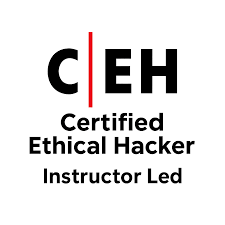Palo Alto Training – Learn Palo Alto Firewalls in 2025

In today’s digital landscape, cybersecurity has become a paramount concern for organizations worldwide. With the increasing frequency and sophistication of cyber threats, there is a growing demand for skilled professionals who can protect sensitive information and systems. One of the most recognized certifications in this field is the Certified Ethical Hacker (CEH) offered by the […]

In today’s digital landscape, cybersecurity has become a paramount concern for organizations worldwide. With the increasing frequency and sophistication of cyber threats, there is a growing demand for skilled professionals who can protect sensitive information and systems. One of the most recognized certifications in this field is the Certified Ethical Hacker (CEH) offered by the EC-Council. This certification equips individuals with the knowledge and skills to identify vulnerabilities and secure systems against malicious attacks.
The CEH certification validates an individual’s ability to think and act like a hacker—but in a lawful and legitimate manner. Certified Ethical Hackers are trained to understand and identify weaknesses in target systems and use the same tools and knowledge as a malicious hacker, but in a lawful and legitimate manner to assess the security posture of an organization.
The CEH curriculum covers a broad range of topics, including:
By mastering these areas, CEH-certified professionals are well-prepared to handle various cybersecurity challenges and protect organizations from potential threats.
Earning a CEH certification opens the door to a multitude of career paths in cybersecurity. Here are some of the prominent roles that CEH-certified individuals can pursue:
Penetration testers, or ethical hackers, simulate cyberattacks on systems, networks, and applications to identify vulnerabilities before malicious hackers can exploit them. They use a variety of tools and techniques to assess the security posture of an organization and provide recommendations for improvement.
Security analysts monitor networks and systems for security breaches, investigate incidents, and implement measures to protect against future attacks. They play a crucial role in maintaining the integrity and confidentiality of an organization’s data.
Security consultants assess an organization’s security measures and provide expert advice on how to strengthen defenses. They may work independently or as part of a consulting firm, helping clients identify risks and implement effective security strategies.
Information security managers oversee an organization’s security policies and procedures. They are responsible for managing security teams, developing security strategies, and ensuring compliance with regulations and standards.
Network security engineers design and implement secure network solutions to protect against cyber threats. They are responsible for configuring firewalls, VPNs, and other security measures to safeguard an organization’s network infrastructure.
Cybersecurity auditors evaluate an organization’s security controls and practices to ensure compliance with internal policies and external regulations. They identify areas of improvement and recommend corrective actions to enhance security posture.
Security administrators manage and maintain an organization’s security systems, including firewalls, antivirus software, and intrusion detection systems. They ensure that security measures are up-to-date and functioning effectively.
CISOs are senior executives responsible for developing and implementing an organization’s information security strategy. They oversee security policies, manage security teams, and coordinate with other departments to ensure comprehensive protection against cyber threats.
Salaries for CEH-certified professionals vary based on factors such as experience, location, and job role. However, the certification generally leads to well-compensated positions in the cybersecurity field.
These figures highlight the lucrative opportunities available to professionals who have obtained the CEH certification.
CEH-certified individuals are in demand across various industries, including:
The versatility of the CEH certification allows professionals to find opportunities in a wide range of sectors.
While the CEH certification provides a strong foundation in ethical hacking, professionals may choose to pursue additional certifications to further enhance their skills and career prospects. Some of these certifications include:
Get certified with industry-leading cybersecurity certifications from EC-Council, PECB, Palo Alto Networks, and more.

Learn from world-class instructors Collaborate with top professionals Advanced training...

The CEH is the world's leading cybersecurity certification, recognized by...

Onsite training course Led by an instructor Interactive sessions

Asynchronous, self-study environment Video-streaming format Flexible learning schedule
Adding {{itemName}} to cart
Added {{itemName}} to cart

